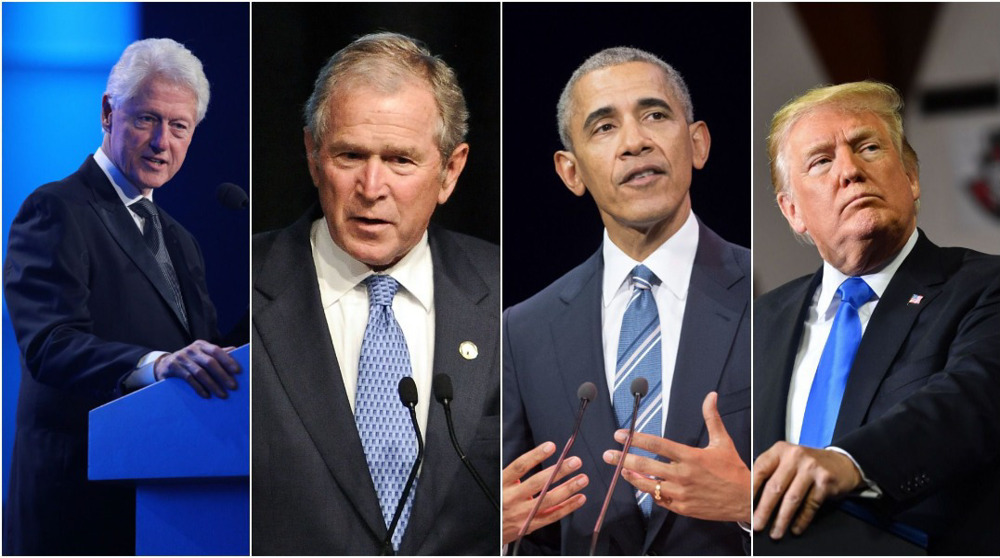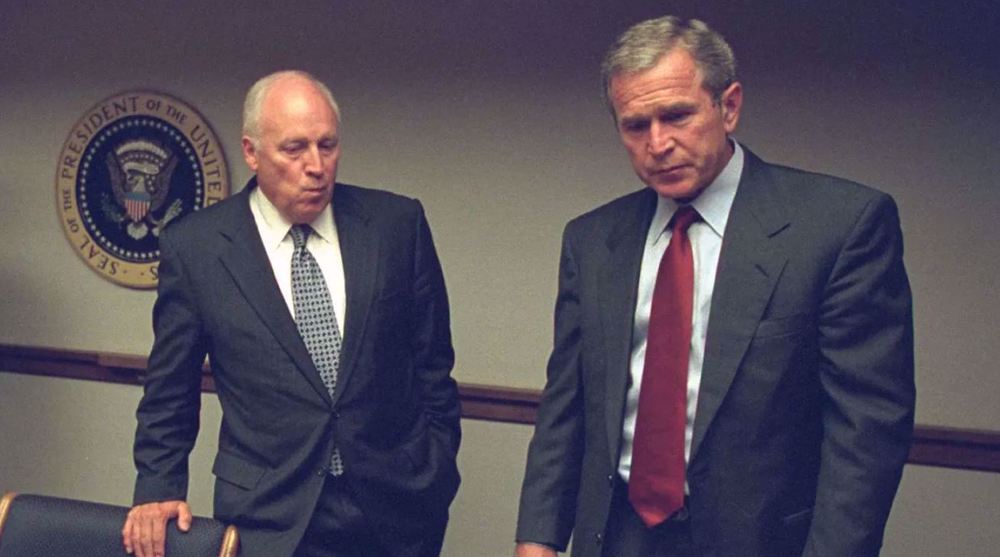US admits massive failure in humiliating Afghan withdrawal
The Biden administration released a review of the humiliating US exit from Afghanistan, admitting there had been a massive intelligence failure in not predicting rapid Taliban victory.
"Clearly we didn't get things right" on intelligence, National Security Council spokesman John Kirby told reporters on Thursday after the still classified report was sent to Congress, according to AFP.
But "ending a war, any war, is not an easy endeavor, certainly not after 20 years," he said. "It doesn't mean it wasn't worth doing -- ending that war in Afghanistan."
The US invaded Afghanistan in October 2001 following the September 11, 2001 attacks on the United States, despite the fact that no Afghan national was involved in the attacks. Hundreds of thousands of Afghans died in the US war of aggression on the country.
American forces had occupied the country for two decades on the pretext of fighting against the Taliban. But as the US forces left Afghanistan, the Taliban took over the capital Kabul with lightning speed in August 2021, weakened by continued foreign occupation.
In a declassified summary of the review, the White House blamed conditions created by former US President Donald Trump for the way the planned 2021 withdrawal turned into a rout, culminating in a desperate evacuation from Kabul airport, that then-US Senate Minority Leader Mitch McConnell (R-Ky.) had called "a lot worse than Saigon in 1975.”
But the document also acknowledged that the US intelligence services had failed to understand the strength of the Taliban and the weakness of the US-installed Afghan government's forces that Western countries had spent years propping up, AFP reported.
In the end, nothing "would have changed the trajectory" of the exit and "ultimately, President Biden refused to send another generation of Americans to fight a war that should have ended for the United States long ago," the report said.
American journalist Don DeBar told Press TV that “this entire war, since Jimmy Carter started it (using George Bush, the first's CIA and Donald Rumsfeld's military intelligence) and George Bush II deployed regulars, through the Obama-Trump and now the Biden administration's time, has been a ‘Saigon moment,’” referring to the 1975 hasty evacuation of remaining American troops from Vietnam when the city of Saigon fell two years after former President Richard Nixon withdrew American forces in the country.
He added that the Afghan withdrawal “is reminiscent of the other national humiliation in what is now known as Ho Chi Minh city, then Saigon, where the US beat another hasty exit after a ridiculously long war that consumed millions of Vietnamese. There, again, what was done to the people of Vietnam is the US national shame, not the decision to finally leave.”
Trump called the Biden administration’s tumultuous withdrawal from Afghanistan "the most embarrassing, incompetent, and humiliating event in the history of the United States."
"Not the fact that we left, I was the one that got our soldier count down to 2 thousand in preparation for leaving," Trump continued, "but the way we left, taking the military out first, 13 dead soldiers (with many badly injured), leaving many Americans behind, and giving the enemy over 85 Billion Dollars worth of the best military equipment in the world. So Sad!"
The Taliban took over the capital Kabul on August 8, 2021, and declared that the war in Afghanistan was over. The militants entered the presidential palace after President Ashraf Ghani fled the country.
The US was forced to close the embassy in Kabul and evacuate diplomats and staff by helicopters.
In the summary, the White House blamed a deal struck previously between the Trump administration and the Taliban for putting the incoming Biden government in an impossible position.
"The departing Trump administration had left the Biden administration with a date for withdrawal, but no plan for executing it. And after four years of neglect -- and in some cases deliberate degradation -- crucial systems, offices, and agency functions that would be necessary for a safe and orderly departure were in disrepair," the document said.
"After more than 20 years, more than $2 trillion dollars, and standing up an Afghan army of 300,000 soldiers, the speed and ease with which the Taliban took control of Afghanistan suggests that there was no scenario -- except a permanent and significantly expanded US military presence -- that would have changed the trajectory," it added.
IRGC says second US THAAD anti-missile unit destroyed
CNN journalists abducted by Israel while reporting on damage from Iranian strikes
Iran denies attacks on Oman as it warns of US-Israeli ‘false-flag’ ops
Iran knows where Netanyahu convenes his meetings: Ex-IRGC chief
‘Law of jungle’: China says Israeli-US aggression against Iran must stop
Iran says committed to regional security; retaliatory attacks only target Israel, US assets
'Blatant war crime': Iran denounces US-Israel strikes on Gandhi hospital in Tehran
IRGC spox: 650 casualties for US military in two days as Iran missiles force aircraft carrier to fle












 This makes it easy to access the Press TV website
This makes it easy to access the Press TV website